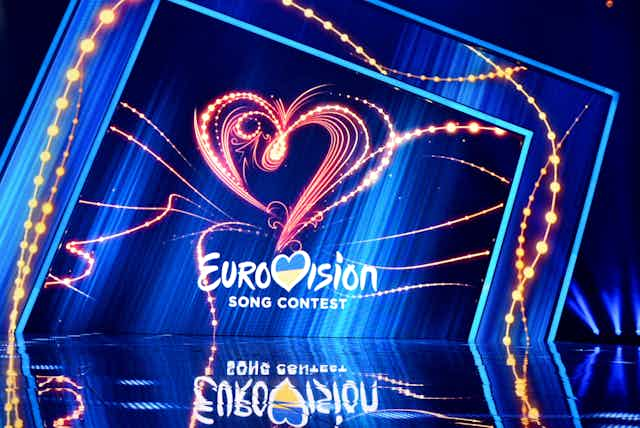Expert judges have been a mainstay of the Eurovision Song Contest since its inception in 1956. These experts are usually industry professionals with experience in popular music distribution. But with the announcement last November that from 2023 the contest will be replacing them with a global public vote in the semifinals, it seems the expert judge has fallen from favour.
What does this say about the quality of Eurovision’s content and the value of the show in the music industry? Largely chosen by the judges, the winners and runners-up of previous Eurovision years – including Måneskin (2021) and Katrina and the Waves (1997) – have gone on to put out far-reaching releases and successful international tours.
Some might argue that Eurovision’s decision to prioritise audience votes over expert insights poses a threat to the inclusion of experts in any artistic judgment of value. Expert judges provide an impartial voice to the voting system, which should be apolitical and focus only on the musical content, style, quality and originality.
As a Eurovision fan and expert in how we communicate through music, however, I love the idea that audience members will get to have more say for 2023. But if audiences are now responsible at the semi-final stage, it seems odd that the judges return for a portion of the final. Why bring in the public at all, if they won’t be trusted to make the right call when it comes to Eurovision’s winning act?
Responding to overseas interests
Eurovision has been developing a wider global reach. This has increased since televoting was introduced, but the contest’s viewing figures have also benefited from the inclusion of Australia both as performers and voters since 2015, thanks to the country’s large Eurovision fanbase.
American TV bosses are currently looking for a network to buy their own Eurovision copy – the American Song Contest – which the Guardian called a “chaotic copycat”. Moving the voting system towards the public and away from experts could be interpreted as a tactic to include American audiences (who can now vote in the contest) and bring them into Eurovision rather than the copycat version.
If a global audience including Australia and the US is both watching and voting in Eurovision, there is a risk that this will reduce the competition’s inclusion of diverse languages.
More countries could be tempted to perform songs in English as that’s the language global viewers will be most likely to understand. Expert judges could help to preserve Eurovision’s lingual and cultural diversity by judging value in that diversity.
More diversity and the inclusion of regional music and art forms is to be welcomed. Ukraine’s 2022 winning song, Stefania, was a perfect example, with its folk fusion with rap and pop.
Is it realistic to call Eurovision apolitical?
Eurovision has always declared itself to be apolitical. But as many music and musicological researchers have noted before, this is not the case. Russia was removed from the 2021 contest due to the war in Ukraine. If politics has nothing to do with Eurovision, then this decision was erroneous.
Songs that year talked of isolation (following the COVID pandemic), climate change and refugees. If the contest is not political, it certainly doesn’t do a good job of curating its content, which is frequently politically charged.
Eurovision fans accept the politics. In many ways, it is part of the show’s sensationalist draw. The recent voting change, then, could more cynically be interpreted as another political move by Eurovision organisers.
Changing the voting make up and bringing in a global audience continues the contest’s move beyond a European political dialogue (whereby neighbouring countries vote for each other) that began with the inclusion of Israel and Australia. Few will now receive nul point.
Bringing audiences in early creates a false sense of parity with the judges, which is undermined as the experts return for the final. The cards are stacked against audience votes. With a seeming lack of trust in both experts to create the final shortlist and audience to judge the final quality, the Eurovision Song Contest is confirming itself to be highly political.






